Seeds hold stories. They wait, carrying the flavors, colors and aromas of the past until we’re ready to call them forth. Owen Taylor and the team at Truelove Seeds, along with 70+ partner farmers, steward the stories of people, cultures, ancestry and diaspora in Truelove’s many seeds and collections.
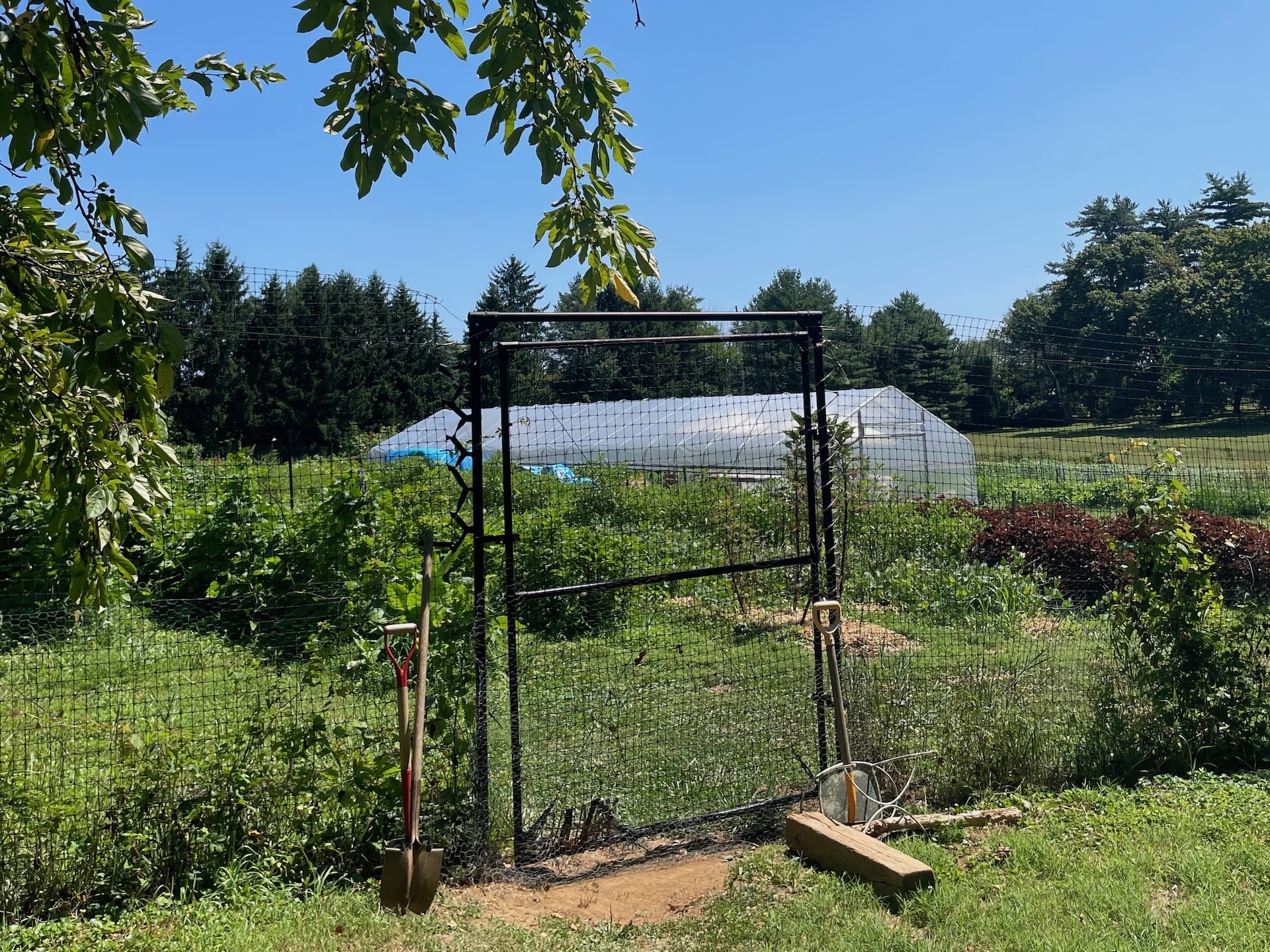
We visited Taylor and his team on their farm in Glen Mills, about 30 miles west of Philadelphia. The energy there is contagiously serene, focused, and gentle, like any nursery — plant or otherwise — might feel. Taylor says he feels like a “plant doula, coaxing the next generation from the plants, and the history and culture embodied in all of them.”
His interest in plants and gardening started early. He says, “I was a plant nerd since I was a kid. I had little vegetable gardens.” As a young adult, living in San Francisco, he got involved with food and environmental justice in the Mission District, and with the health department, before taking an internship with Just Food in New York City. “I was the chicken guy,” he says, recalling building 20 or so chicken coops while also teaching adults at Farm School.
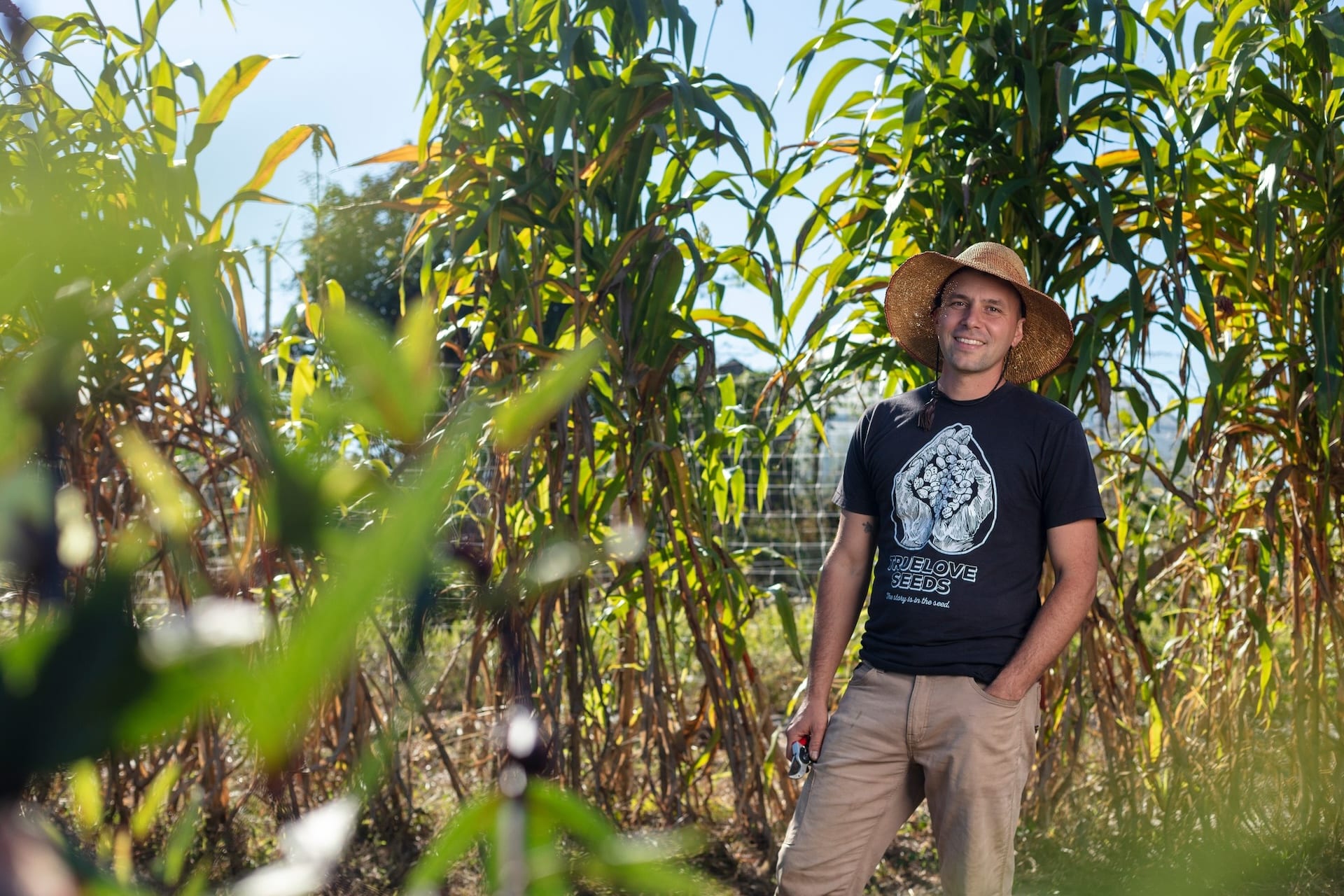
Taylor later got involved with community organizing before meeting William Weaver, who has turned his grandfather’s massive heirloom seed collection into The Roughwood Seed Collection. Observing this collection of seeds and all that it carried, Taylor says, “I could see what I wanted to do.”
He spent the next four years working with Weaver while also pulling together a pool of family farms with cultural focuses. “I was yearning to do it in community,” he says, explaining his desire to share stewardship with people for whom the seeds held cultural, familial and social significance. Much of the inspiration to pursue cultural lines was from Owen’s partner, Chris Bolden-Newsome, co-director, farm manager and educator at Sankofa Community Farm at Bartram’s Garden, which focuses primarily on plants and practice of the African diaspora. Truelove offers an African Diaspora seed line, in addition to collections, like East, South and Southeast Asian, Italian, Philadelphian, winter crops and more.
Truelove Seeds officially launched in 2017 and has grown since, with a few bumps along the way. Taylor says, “We’re a values-based, missions-based business still trying to figure out how to sustain ourselves.” One persistent challenge has been finding a permanent space to farm. While much of Truelove’s seeds are grown on partner farms, Taylor and his team grow numerous plants, while also running apprenticeship and volunteer programs on rented farm space in Glen Mills. Taylor would like for Truelove to purchase a plot of land closer to its headquarters in Germantown, Philadelphia, a vision that’s well on its way thanks to a donation-based campaign.
In the meantime, Taylor stays the course, farming daily, collaborating with different organizations and doing community work. This includes hosting workshops, engaging with art projects and storytelling. He and Bolden-Newsome produce an incredible podcast, Seeds and Their People, which reveals the profound connections between people and seeds through the stories shared by their guests.
Taylor also grows seeds in collaboration with organizations including the Palestinian Heirloom Seed Library, the Iraqi Seed Collective, The Italian Garden Project and the PA Flax Project.
“Our main focus is to work with people who steward their own traditional seeds to make them available to those communities – wherever we can ship them – to stay connected with tastes of home. That’s our reason for existing,” he says. This means selecting for traits most important to those communities. Depending on recipes and plant uses, Truelove selects for things like leaf size, fruit size and acclimation to Pennsylvania.
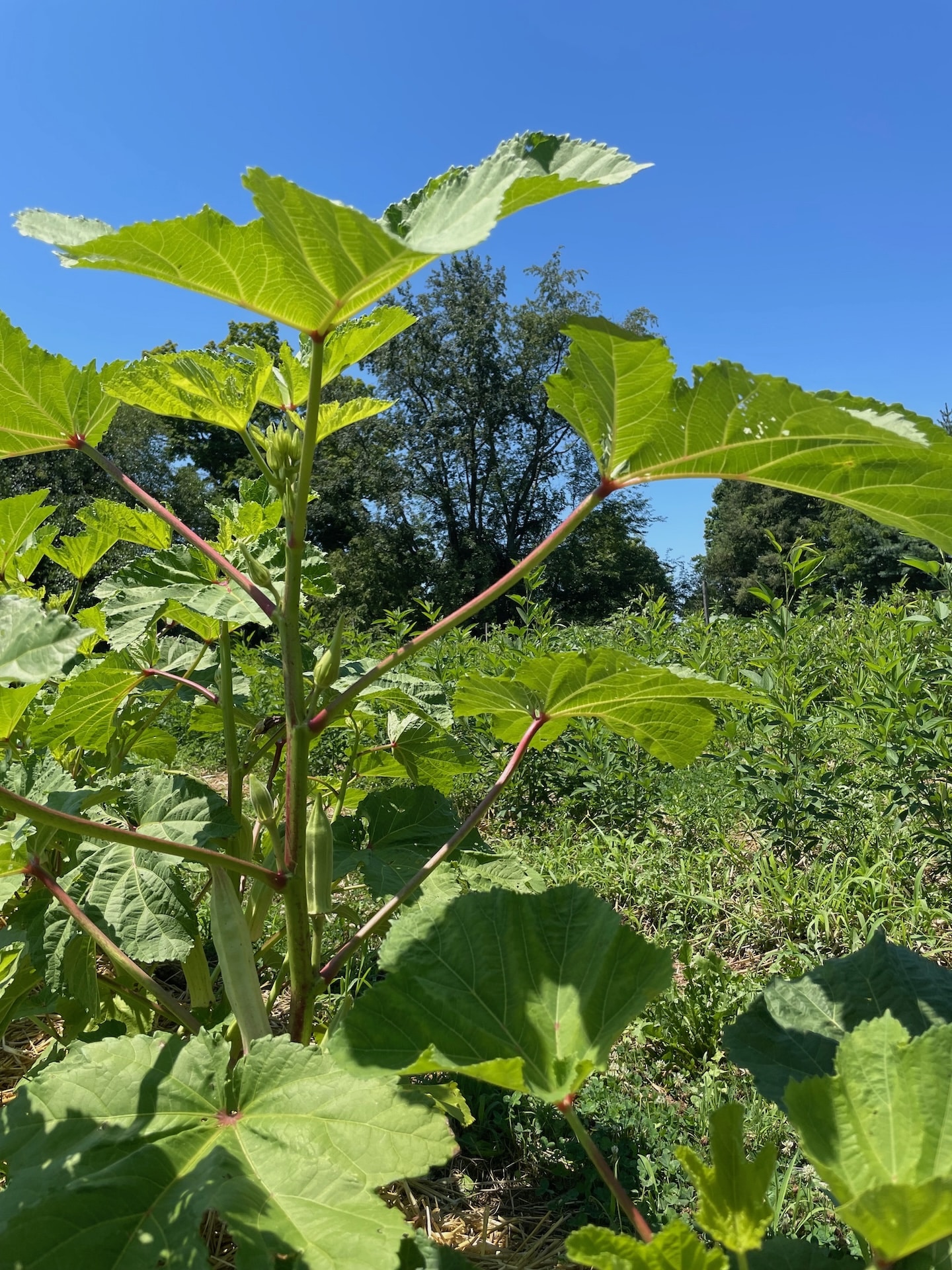
Taylor shows us a row of okra, grown for the Palestinian Heirloom Seed Library, growing in all different sizes. Whether it’s due to soil or water distribution or something else altogether remains unclear, but Truelove will take seeds from the most robust and healthy okra, selecting for the still-elusive trait that responds so well to the Pennsylvania climate and soil. Likewise with flax, which Truelove grows in support of statewide rejuvenation of the fiber industry. Truelove selects for the strongest, tallest flax, which provides the longest fibers for textile production.
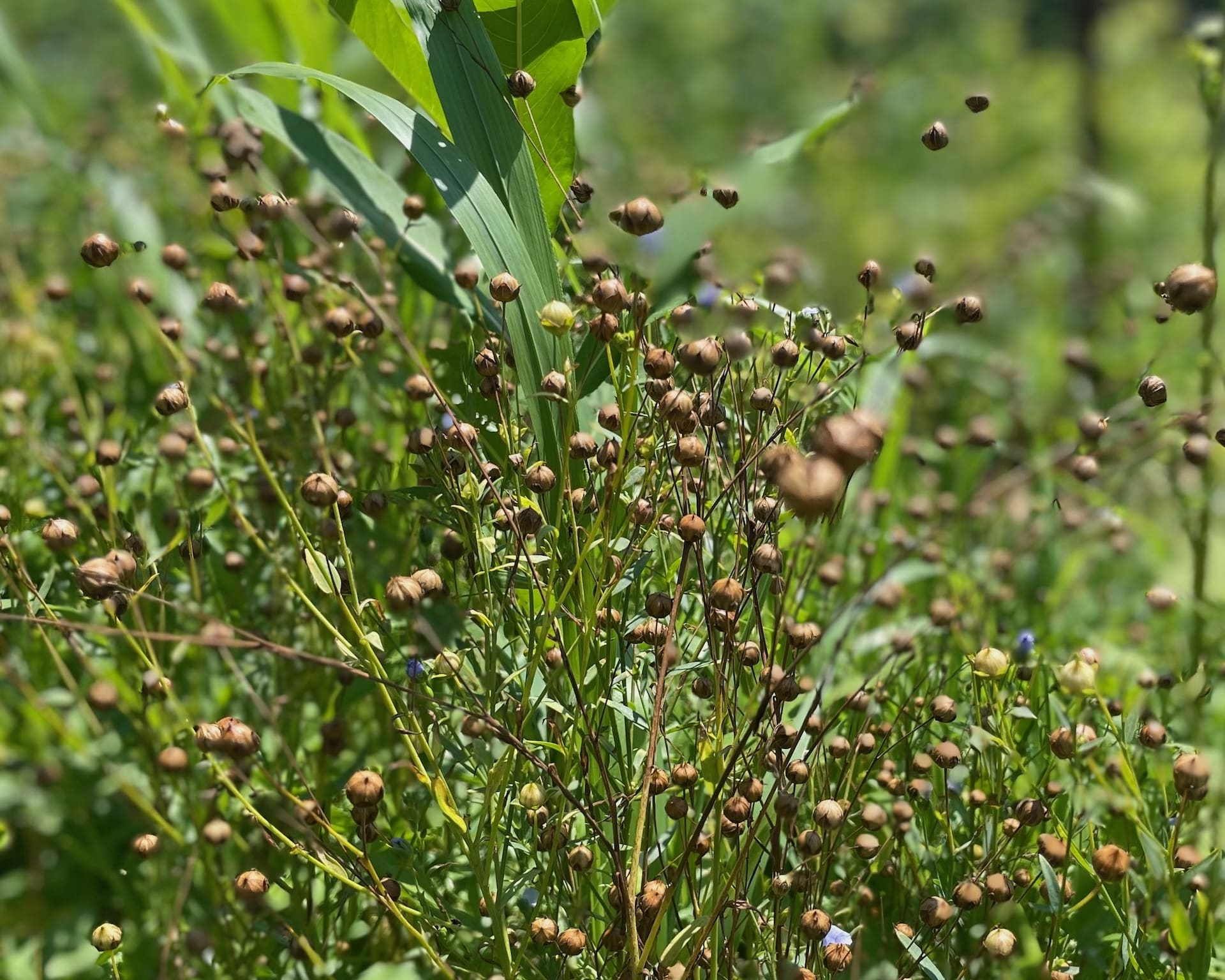
A lot of Taylor’s work is puzzling out the challenges and mysteries involved with farming and growing healthy plants. As a pesticide-free farmer, Taylor has had to get creative around controlling pests, like a recent batch of Mexican Bean beetles feasting on the farm’s butter beans. Taylor ordered 1,000 adult wasps (Pediobius foveolatus) and 20 mummies, which are beetle larvae filled with wasp eggs. The wasp eggs hatch and kill the larvae, and the adult wasps continue to mummify new beetle larvae, launching a cycle of targeted pest-reduction. Native pollinators also help control pests by fostering a diverse ecosystem. The Xerces Society recently sent Truelove Seeds 550 native pollinators, which are attracting beneficials and strengthening the plants around them.
Another challenge Taylor embraces is working with plants less common to Pennsylvania soil and climate. People approach Truleove to see if certain cultural and ancestral plants can be grown in Pennsylvania, and Taylor and his team do trials. They rely on trusted feedback on how they’re doing and if the plants meet expectations for various cultural uses. “Tell me if this is right for you before we sell it,” he says.
It took him years to figure out how to germinate and grow recao (culantro), which now sits happy and green below him as he speaks. He first learned of it while working with a Dominican chef at Farm School, who told him she couldn’t find it anywhere and hoped he could. He was able to locate some at a Vietnamese grocer, but had a hard time growing it, himself. Endless inquiries and searches finally led him to a Puerto Rican YouTube channel, where he learned that it needs light to germinate, the soil has to be constantly wet, and once its begins growing, it requires lots of shade. Now, he grows recao in tandem with gandules (pigeon peas), alternating the two in a single row, which allows the pigeon peas to provide the partial shade recao requires. The two plants, together, are thriving.
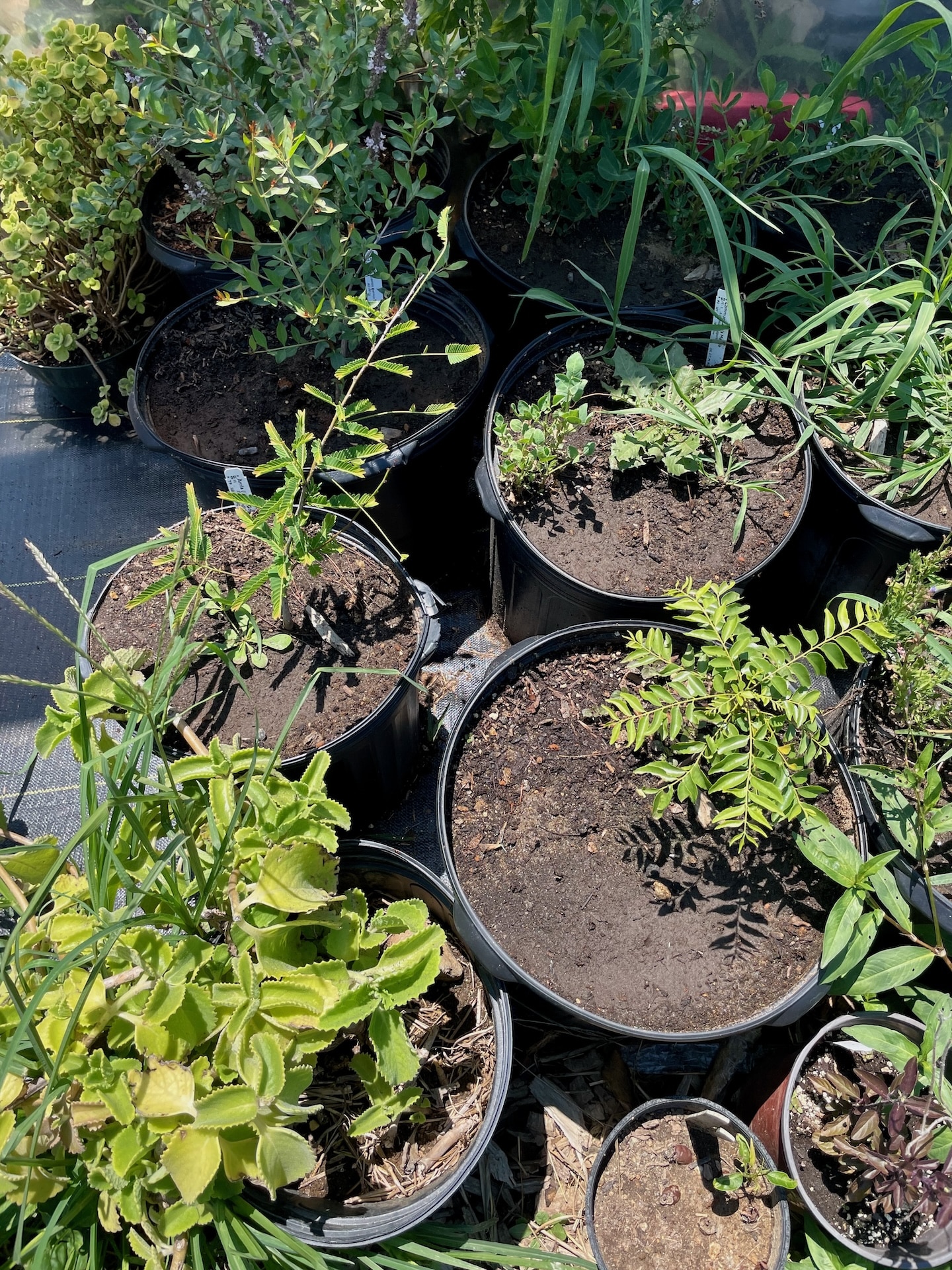
Among its countless other gardening endeavors, Truelove is running a trial with Indian plants amla (Indian gooseberry), henna, curry and Indian mint, growing a Baobab tree, recently added chin baung (Burmese roselle leaf, used for special jams and jellies) to its offerings and is experimenting with growing sweet potatoes from seeds “just for fun.” Taylor also says the farm’s mugwort patch planted itself. “I decided to let it have its area. We try to get to know the weed,” he explains.The farm is a veritable playground for plants and an orderly, soothing nursery.
Taylor doesn’t approach plants as rarities or exotics, but rather connections to people’s stories, cultures and heritage. The goal is for partner farmers to take over growing plants within their areas of expertise and familiarity. Taylor grew Nigerian plants until he found a Nigerian farmer, and currently has a small collection of Ethiopian plants just waiting for someone to take them.
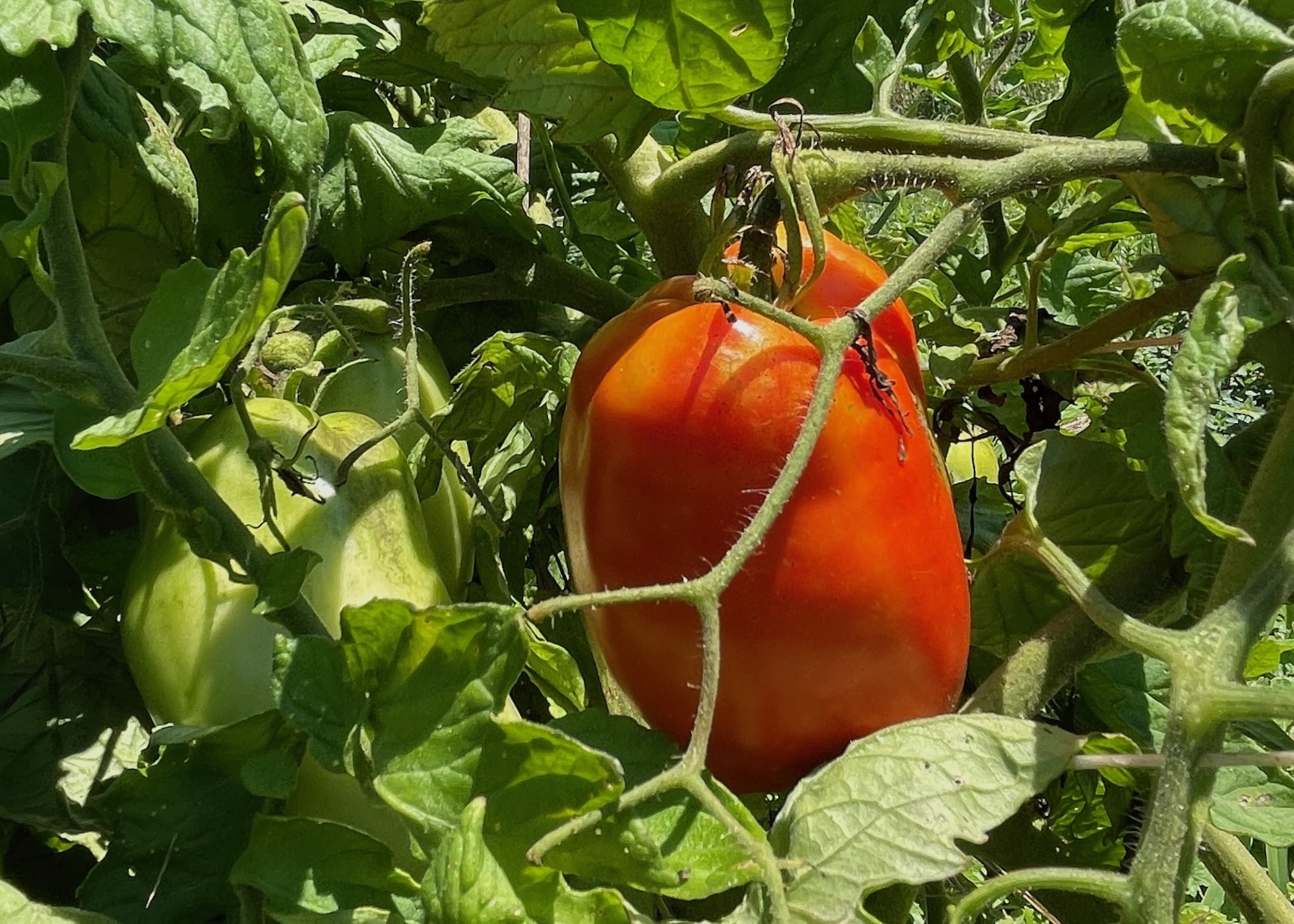
Among the cultural lines at Truelove, you’ll also find plants connected to Taylor’s Irish and Italian heritage, like Irish parsnip, frying peppers, Cucuzza gourds, eggplant, and San Marzano tomatoes. He makes 50 quarts of tomato sauce every year and considers eggplant parmesan a specialty, using a favorite recipe from Cooking with Nonna. He also makes Efo Shoko callaloo by the gallon, and says “It’s a favorite in my household.”
Everything done at Truelove is a team effort, from the 70+ partner farmers, who receive 50% of seed packet sales for plants they grow, to the on-site staff, apprentices and volunteers. Miki Palchick co-manages the Glen Mills farm and its roughly 150 types of plants, the cut flower program and the apprenticeship program, among other tasks. She’s introduced many Japanese plants to the Truelove offerings, and spends a great deal of time there farming. Maebh Aguilar manages the Germantown office and the seed collection, including inventory, order fulfillment and shipping, while also helping to farm their Ecuadorian and Andean crops.
Truelove also hosts many volunteers and runs a yearly apprenticeship program. The program provides structured learning to aspiring seed keepers, seed producers and natural farmers with a focus on their particular ancestral plants as they work alongside Truelove staff at the farm. Among past apprentices is Amirah Mitchell, who now owns and operates Sistah Seeds, offering African, African-American and Afro-Caribbean heirloom seeds. She remains a partner farmer, and the most prolific grower among them.
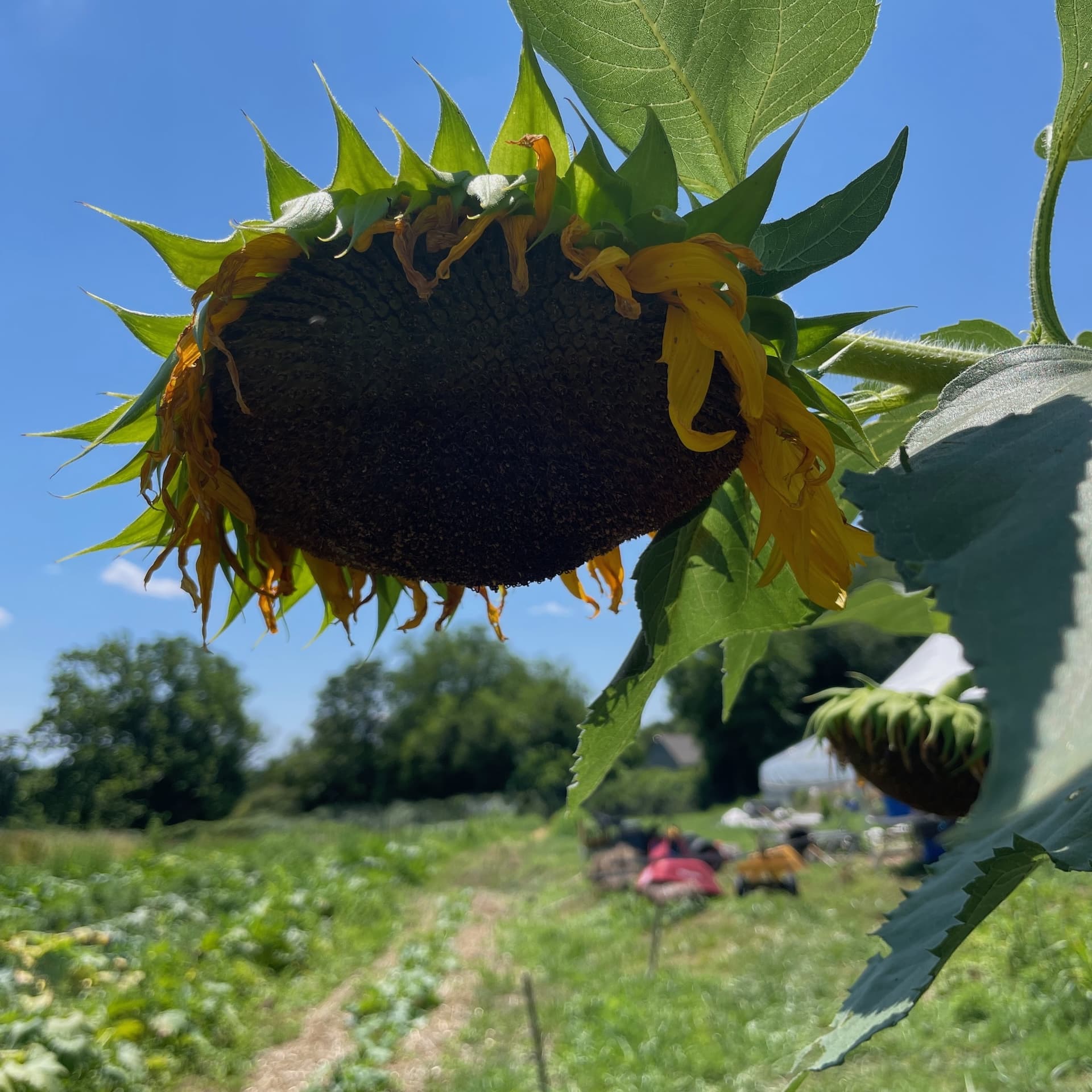
Much like the plants on its farm, Truelove Seeds adapts, grows and explores in turn. As Taylor and the team work towards their vision of a new farm, the moments between are filled with daily tasks, challenges, successes, and a healthy dose of art and expression. Keep an eye out for its next big collaboration with The Academy of Natural Sciences. Taylor and the team are helping to create an exhibition featuring dried, culturally important heirloom plants from five Philadelphia area farms, on display in the academy’s herbarium alongside multi-media stories about people and their plants.
To tune into the happenings at Truelove Seeds, follow its Facebook and Instagram pages. To learn more about its growth campaign and to order seeds, visit its website. And we can’t recommend its podcast enough!
- Feature photo: Sahar Coston-Hardy
- Other photos: Leigh Green
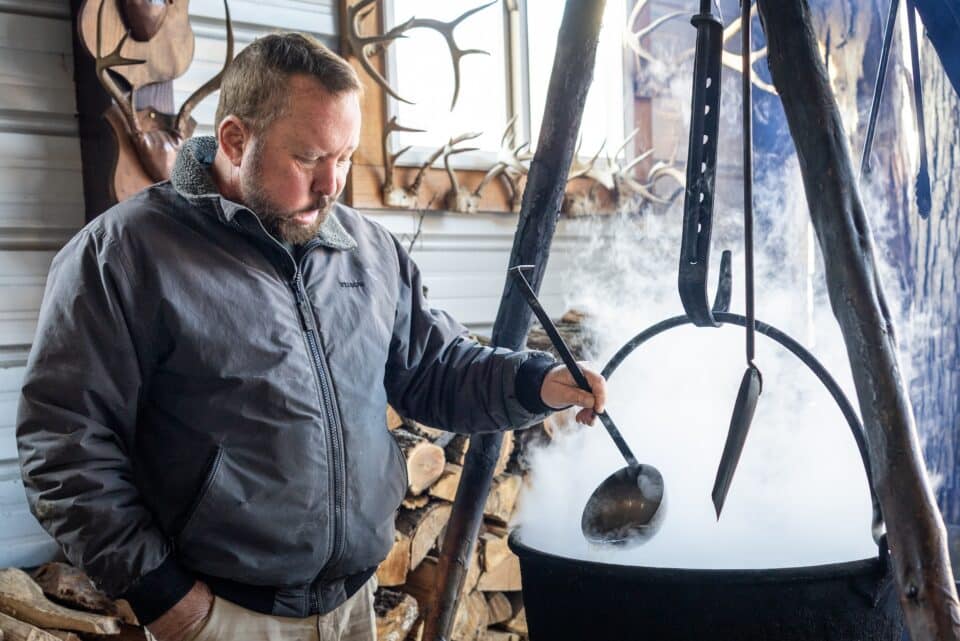
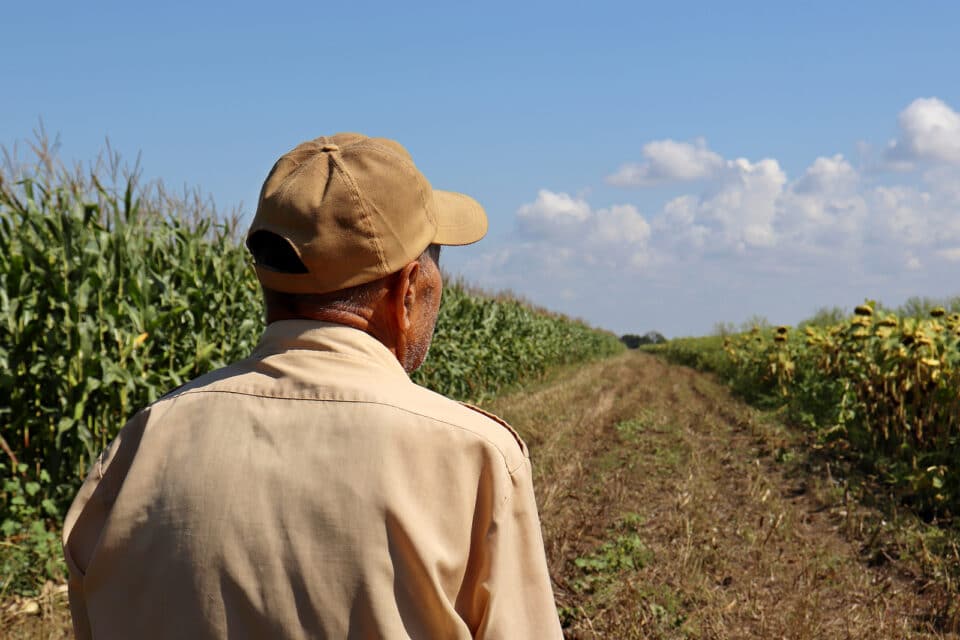
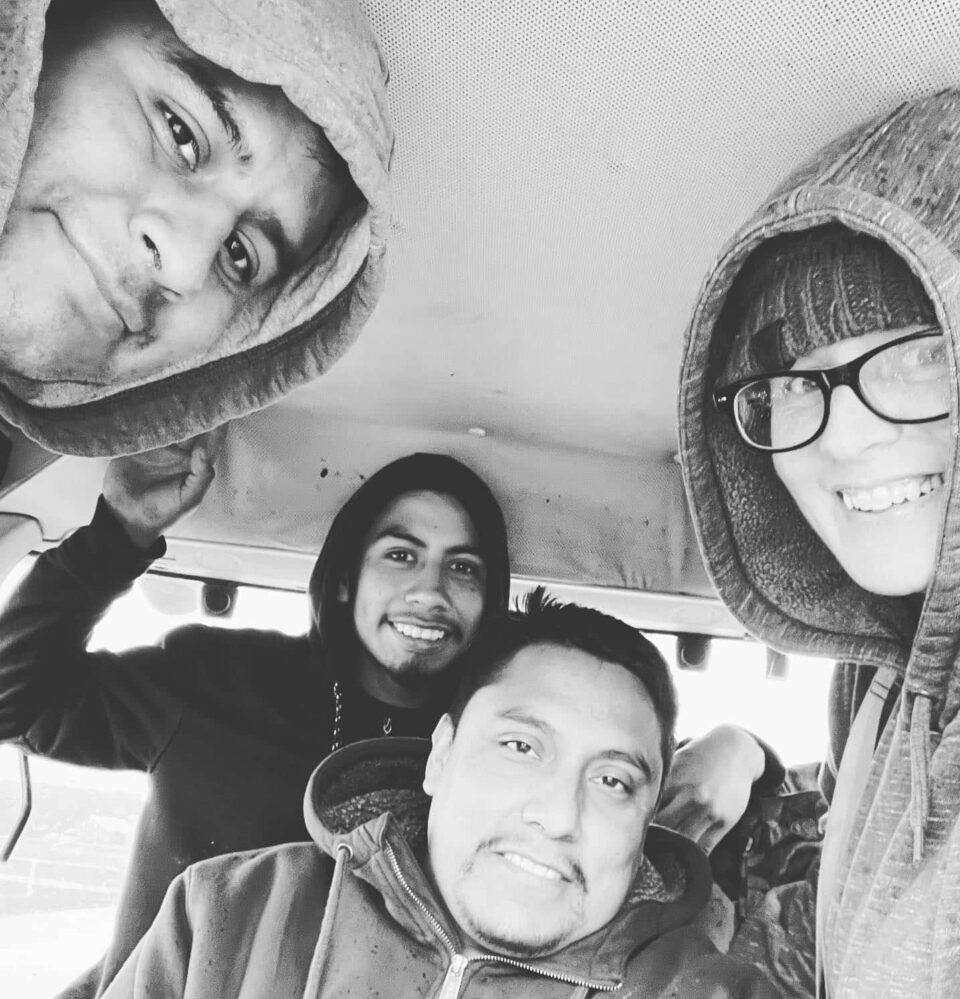
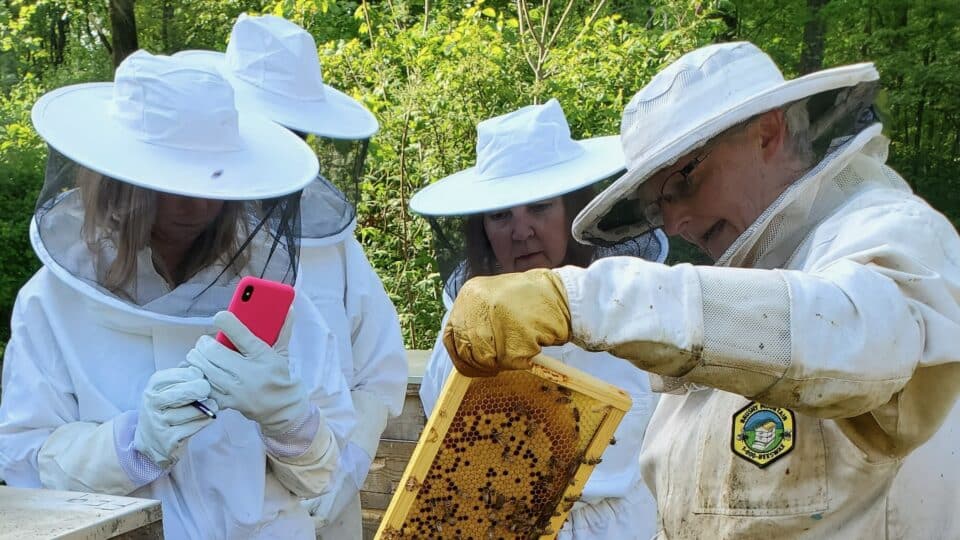

3 Comments